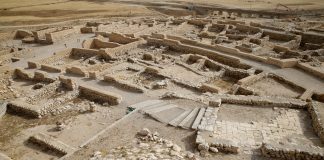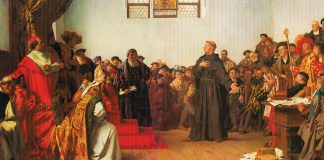Trusting faith
An ordinary wooden chair is a metaphor that’s often used to talk about the key dynamics of faith. But it’s worth exploring further. Perhaps we could describe this as a process of developing the theory of a chair.
Does prayer work?
As a book editor who works in a Christian publishing house, I know prayer works from a sales perspective. Books on the topic of prayer are consistently among our best sellers. It seems that many of our customers and readers—mostly people of faith, but including people who are interested but uncertain about faith—are keen to be reassured that prayer works and to find...
On the banks of a river where no one had ever been
Jim Elliot was 25 years old when he headed to Ecuador as a result of the answer he sought from God regarding his future.
“Eternity In Their Hearts” | Book review
Born in Canada, in 1935, Don Richardson was a missionary who fervently carried on the Renaissance spirit of the great missionaries. Having studied at the Prairie Bible Institute and the (Wycliffe) Summer Institute of Linguistics, together with his wife, he worked as a missionary among the Sawi of Papua New Guinea for 15 years, and translated the Bible into their language. His books,...
Luther’s protest is not over
In January 2014, in what catholic.org called a historic gesture, Pope Francis sent a message of unity, recorded on a mobile phone, to charismatic and Pentecostal leaders attending a conference organised by Kenneth Copeland Ministries.
Criticism of Daniel: Arguments of destructive criticism and their counterarguments
The biblical prophet Daniel was treated with hostility during his lifetime and has been attacked throughout history by sceptical or apostate Jews and Christians. At the same time, he has been cherished and defended by people of all generations, including faithful Jews, Jesus Christ, and modern researchers, who have systematically responded to criticisms and objections raised against his book and prophecies.
What is stewardship?
The smell of burning food filled my tiny kitchen. “What's that smell?” I asked a friend who was sharing my house for the week. Every young man knows the smell, familiar from an early age—your first acquaintance comes from burnt toast and camping trips where, after burning everything you tried to cook, you end up eating your baked beans straight from the can.
The pop apocalypse in movie theatres
Please, not now! Don’t come right now! Please... I suddenly opened my eyes in the darkness of my bedroom and, all of a sudden, the heat wave building up during the nightmare met the coolness of the night reality. You haven’t come yet... Thank you, God!
The late gospels and apocryphal Christianity
It was the first time most Christians had heard of the Gnostics— communities of Christians who lived between the 2nd and 4th centuries and whose scriptures and spiritual beliefs bore little resemblance to what is now considered traditional Christianity.
I didn’t know that God cries too
In those times when grief accompanies us and we find ourselves alone in the middle of the night, does God shed tears with us?
The mark of the beast | A controversial apocalyptic motif
In addition to its social and economic consequences, the COVID-19 pandemic also raised a religious question that has been raised every time there has been a major change in society: did the wearing of the mask, the anti-COVID vaccine or the green certificate have anything to do with the mark of the beast or the number 666 in the last book of the...
I wish I had known that there was a divine plan for me
At the age of 20, I graduated from the Orthodox Theological Seminary. I thought I was talented, I was confident, and I had a very clear idea of the path I wanted to take in life. I had all the answers. Or perhaps I hadn't asked myself enough questions.
What the book of Revelation says about a new world order and the end of the world
The book of Revelation, in chapters 13 and 17, does refer to a world order, but it could hardly be called “new”. It is more of a return to an old historical order, but this time with unprecedented, worldwide success.
Biblical prophecies and conspiracy theories
In 2015, charismatic evangelical Jeremiah Johnson, who worked as a pastor and church planter in Florida, USA, made a bold claim. He announced that a voice from God had told him in a dream that Donald Trump would become the President of the United States. When this prediction came to pass, Johnson gained nationwide fame.
Change and stability in religion
Professor Bailey V. Gillespie, from La Sierra University's Department of Theology and Christian Character in California, impressed me with both the diversity of his interests and his prestigious achievements, particularly in the field of young people's religious experience.


























